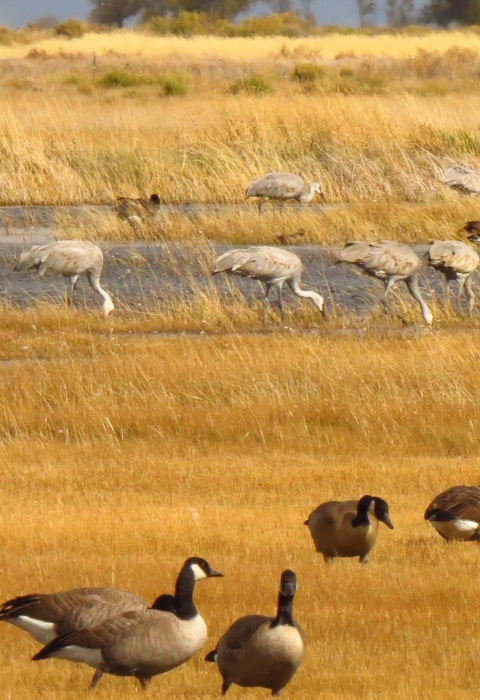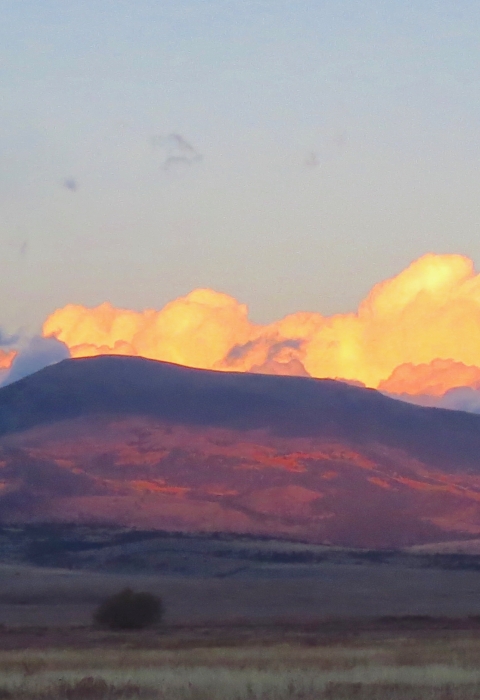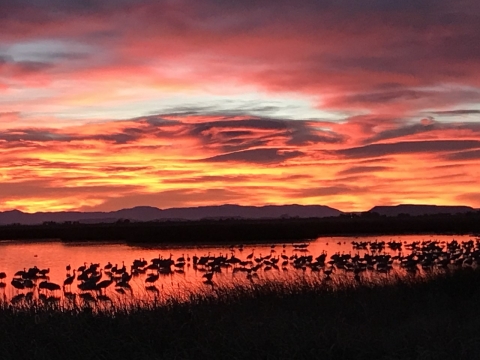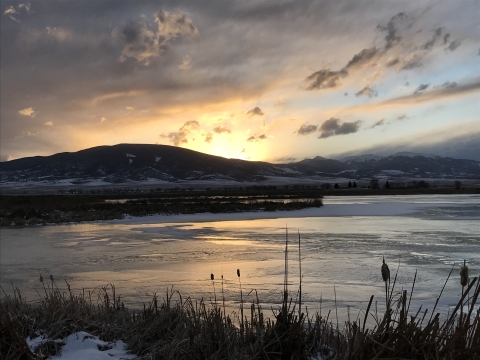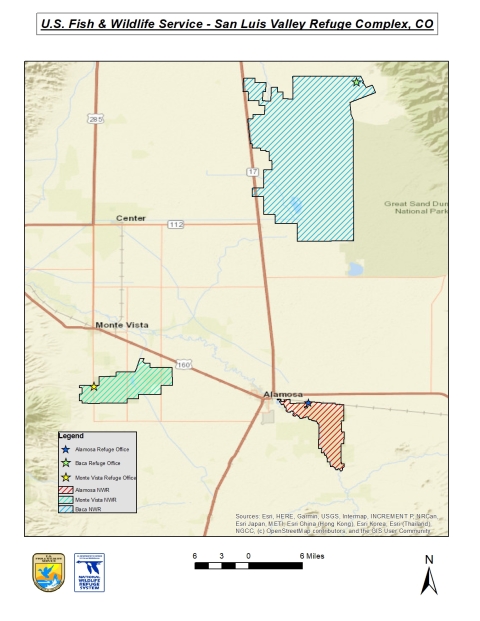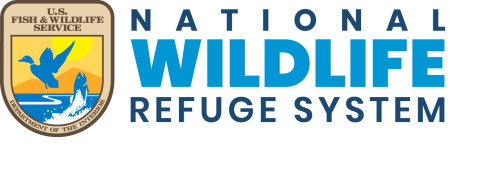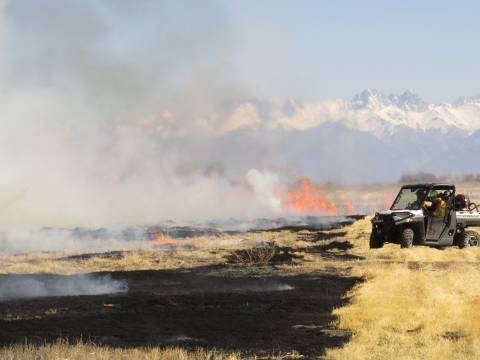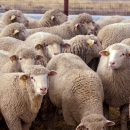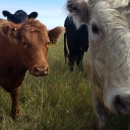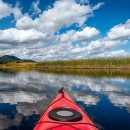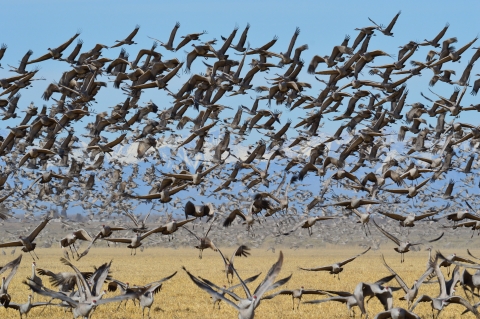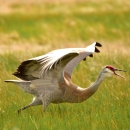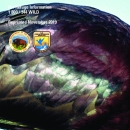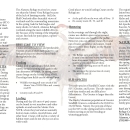Visit Us
Wildlife Viewing & Events (3/19/2024)
* Sandhill Cranes, and various other waterfowl, are flocking to the Monte Vista Refuge in great numbers. Several thousand cranes can be observed loafing, feeding, and dancing on the refuge. Best places and time to view these birds are along the Wildlife Drive and Refuge Observation Pullouts in the morning and late afternoons. Our "Sandhill Crane Viewing Guide", link below, gives excellent information on how to find these pullouts and general information about Sandhill Cranes. Additionally, several Bald Eagles, and other raptors, have been seen on the refuge as of late, as well as our local elk herds.
As a Reminder: Please respect all Refuge Boundaries, Rules & Regulations, and Closed Areas. These areas are there for wildlife and resource protection. If found inside closed areas or violating refuge regulations, Refuge Officers can and will issue citations.
Monte Vista Refuge General Information Brochure
The small office and visitor contact station at the Refuge is located at the start of the Wildlife Drive. The visitor contact station is operated by volunteers and may not be open on a regular schedule. All brochures and refuge information will be posted in the kiosk located near the entrance of the Wildlife Drive.
For more information, please call us at 719-589-4021 or by email at alamosa@fws.gov.
Monte Vista Refuge General Information Brochure
You can also contact Friends of the San Luis Valley Refuges for more information.
Location and Contact Information
About Us
About the Refuge
Monte Vista National Wildlife Refuge is located in the San Luis Valley, a high mountain basin located in south-central Colorado. It’s one of three national wildlife refuges in the Valley that provides crucial feeding, resting, and breeding habitat for over 200 bird species and other wildlife. Alamosa and Monte Vista Refuges are located at the south-central end of the Valley and Baca Refuge is located at the north end.
About the Complex
The San Luis Valley National Wildlife Refuge Complex is made up of the Alamosa, Monte Vista, and Baca National Wildlife Refuges and is an area set aside for migratory birds and resident wildlife. These Refuges are part of the National Wildlife Refuge System, a network of lands set aside and managed by the U.S. Fish and Wildlife Service specifically for wildlife. The Refuge System is a living heritage, conserving wildlife, and habitat for people today and generations to come.
The 12,026 acre Alamosa National Wildlife Refuge includes wetland areas, riparian riparian
Definition of riparian habitat or riparian areas.
Learn more about riparian corridors, wet meadows, and river oxbows. The wetland and river habitats provide a wildlife oasis in this dry region. These habitats support a variety of wildlife, including songbirds, water birds, raptors, deer, beavers, coyotes, and more.
The artificially created wetlands on Monte Vista National Wildlife Refuge’s 14,804 acres are intensively managed to provide habitat for a wide variety of waterfowl and other water birds. Mallards, pintails, teals, and Canada geese are common, as are American avocets, killdeers, white-faced ibises, egrets, and herons. Irrigation canals and wells provide precious water to maintain this important habitat.
The 93,000 acre Baca National Wildlife Refuge is a highly diverse combination of shrublands, grasslands, wet meadows, playa wetlands, and riparian areas. This Refuge was set aside not only as a haven for migratory birds and resident wildlife, but also as an important piece in a broader conservation effort to protect the wildlife, habitat, and water of the north and eastern portions of the San Luis Valley.
The Valley, sitting at 7,800 feet, extends over 100 miles from north to south and 50 miles from east to west. Three mountain ranges surround the Valley – the Sangre de Christo to the east, the San Juan to the west, and the Saguache to the north. At sunset, the highest peaks of the Sangre de Christo range take on a blood red glow which inspired the Spanish explorers to name them after the “Blood of Christ.”
The surrounding mountains feed the arid valley with precious surface water and replenish an expansive underground reservoir. The mountain snow melt and artesian wells provide needed water to the agricultural community and to the rivers, creeks, and wetlands that thread across the valley floor.
These Refuges contribute to over 560 refuges in the National Wildlife Refuge System – a network of lands set aside and managed by the U.S. Fish and Wildlife Service specifically for wildlife. The Refuge System is a living heritage, conserving wildlife and habitat for people today and generations to come.
What We Do
U.S. FISH & WILDLIFE SERVICE
San Luis Valley National Wildlife Refuge Complex
7824 El Rancho Lane
Alamosa, Colorado 81101
For Immediate Release
3/13/2024
Prescribed Burns Planned
Alamosa, Baca, & Monte Vista National Wildlife Refuges
Contact: Dean Lee, (719) 589-4021 x1008, Dean_Lee@fws.gov
Alamosa, CO – The U.S. Fish and Wildlife Service will be conducting prescribed fire operations on the Alamosa, Baca, and Monte Vista National Wildlife Refuges to remove old and matted vegetation to improve wildlife habitat. Additionally, slash piles of natural materials will be burned as conditions and needs exist. Professional fire personnel from the U.S. Fish & Wildlife Service Mid-Plains Fire Zone, State, and Federal Partners will conduct the fire operations. Planned target dates for burning will be during the months of March and April and again in October and November 2024. The Refuges’ Auto Tour Routes and Walking Trails may be temporarily closed to the public during fire operations for safety concerns. For your safety, please avoid these areas! Areas will re-open as soon as possible based on fire activity and safety.
Smoke will be visible to local residents, towns, and highways during the day and may last for a few days following burning operations. Signs will be posted along the nearest major roads and all burns will be monitored until they are declared completely out.
For up-to-date information, you may contact Alamosa and Monte Vista Refuge Manager Suzanne Beauchaine (719) 589-4021 x1003 or Assistant Refuge Manager Dean Lee (719) 589-4021 x1008, or Baca Refuge Manager Ty Benally (719) 256-5527.
Additional information can be found on our San Luis Valley National Wildlife Refuge Complex Facebook page at http://www.facebook.com/SanLuisValleyRefugeComplex
Prescribed fire smoke may affect your health. For more information see https://www.colorado.gov/pacific/cdphe/wood-smoke-and-health
– FWS –
-------------------------------------------------------------------
Our Organization
Our Species
Sandhill Cranes
Each year, thousands of Sandhill Cranes descend upon the wetlands and agricultural fields of the Monte Vista National Wildlife Refuge during their biannual migration to rest and fuel up for the next leg of their journey. During the spring migration, the refuge will host ninety-five percent, 18,000-21,000, of the Rocky Mountain population of the Greater Sandhill Cranes and another 5,000-6,000 Lesser Sandhill Cranes. This stop-over at the Monte Vista Refuge is critical for the cranes during their migration. At this time of year, most food sources and quality crane habitat are either under snow or are frozen. However, on the refuge, wetlands are filled, and grain fields are mowed to provide the cranes the two elements needed for their migration… food and roosting cover. The peak migration period of cranes on the Monte Vista Refuge is around the first week of March and again around the second week of October.
